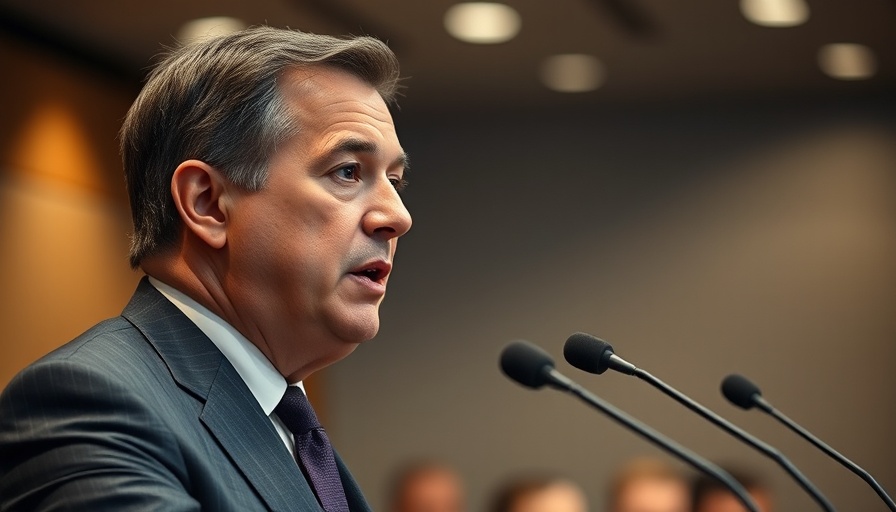
Reimagining Johannesburg: A Call to Action for Restoration
In a bold move towards reclaiming the glory of Johannesburg, South African President Cyril Ramaphosa has announced the formation of a Presidential Working Group aimed at addressing the city’s numerous challenges, notably its crumbling infrastructure and deteriorating service delivery systems. This initiative, reminiscent of strategies implemented in KwaZulu-Natal, aims to engage various stakeholders in municipal governance to ensure collaborative efforts towards rejuvenation.
Understanding Johannesburg’s Struggles
Johannesburg has long been regarded as the economic powerhouse of South Africa, responsible for 16% of the nation’s GDP. However, it now finds itself grappling with serious issues, from widespread outages caused by the ongoing load shedding by state-owned enterprise Eskom to rampant crime and decreasing municipal resources. The city has been described as 'archaic' with infrastructure dating back to apartheid, highlighting an urgent need for comprehensive reform.
Collaborative Approach: Integrating Local and National Expertise
Ramaphosa emphasized the importance of a 'District Development Model' (DDM) approach that encourages a united front between local municipalities, provincial bodies, civil society, and the private sector. This collaborative framework has already shown promise in eThekwini, indicating that engaging multiple perspectives is fundamental to effective governance and city management.
The Significance of an Engaged Community
As the President noted during his recent visit to Soweto, community perception is critical. When citizens feel that their voices are ignored, discontent manifests through service delivery protests and growing distrust in government institutions. The establishment of this working group is not merely a response to infrastructural decay; it is an openness to political accountability and responsiveness to community needs.
Looking Ahead: Is This the Turning Point for Joburg?
Ramaphosa’s commitment to revitalizing Johannesburg comes at a pivotal moment as the city prepares to host the G20 summit. Mayor Dada Morero's assurance that the city is ready to rise to this occasion reflects a newfound determination among local leaders to demonstrate that Johannesburg can indeed reclaim its status as a vibrant metropolis.
Precedent and Potential: Learning from eThekwini
Following the success attributed to the Presidential eThekwini Working Group in transforming the coastal city in the KwaZulu-Natal province, Johannesburg’s leaders aim to replicate these strategies. Implementing foundational infrastructure projects and modernizing public services could restore not only the city’s economy but also the confidence of its residents.
Investment in a Brighter Future
Another vital aspect of this initiative is encouraging foreign investment and stimulating job creation in a city where unemployment rates have soared. By addressing its infrastructure challenges, Johannesburg can attract the necessary capital and expertise to foster sustainable development and innovation.
Final Thoughts: A Collective Effort for Renewal
The return to Johannesburg’s former glory relies on proactive engagement across all sectors of society. Addressing the intertwined issues of economic recovery, infrastructure maintenance, and community trust is essential for turning around the city’s fortunes. As residents and stakeholders rally behind this initiative, the potential for genuine transformation stands at the forefront of South Africa’s national consciousness.
Join the conversation: How can Johannesburg ensure that this planned restoration translates into tangible benefits for its citizens? What further measures can be adopted to ensure accountability and transparency in this rejuvenation process?
 Add Row
Add Row  Add
Add 




Write A Comment